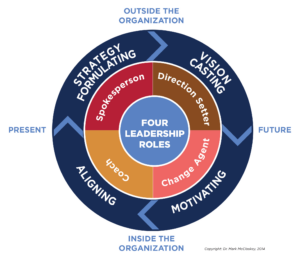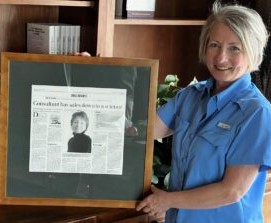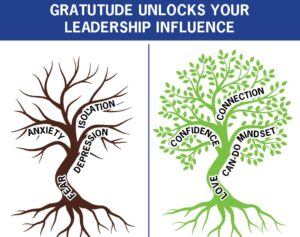
Leadership Strategy: How to Protect Your Business Results from Expressive Individualism
“You be you, be true to yourself, follow your heart, find yourself.” What does this statement have to do with achieving business results? How does this thought process impact executing your leadership strategy?
It seems like harmless advice. But, is it?
Does it lead to a Blue Zone culture, like we experienced in our trip to Costa Rica? Or, a Red Zone?
These are some of the slogans for a worldview called – Expressive Individualism.
Most of use haven’t heard this term before. Yet, it’s the ethos of America -it’s about being happy in your own way. It’s a me-me-me focus.
As a business leader, you may wonder why I’m talking about a seemingly harmless trend.
- What does it have to do with achieving concrete business results?
- What does it have to do with executing your leadership strategies?
Is it really as harmless as it seems on first glance.

Warning – A Seemingly Innocent Trend that Kills Business Growth
The impact of Expressive Individualism is one more destroyer of business growth and leadership development.
While it’s important to express yourself, it’s essential to recognize that Expressive Individualism contributes to creating a disengaged culture in your workplace. Here’s what critics say about the downside. The excessive focus on me-me-me:
- weakens the connections between co-workers.
- blurs the shared values that hold a team together, and,
- makes it harder for everyone to work together effectively.
A me-me-me focus can ultimately sabotage the growth and success of your business.
Check out these startling facts in an article about a recent Gallup study.
- By the end of 2023, 33% of U.S. employees overall were highly engaged. They were involved and enthusiastic about their work and workplaces.
- Unfortunately, in the first quarter of 2024, engagement dropped three percentage points to 30% among both full- and part-time employees.
- This decline represents 4.8 million fewer employees who are engaged in their work and workplace.
- t marks the lowest reported level of engagement since 2013.
I believe this warrants a closer look at the impact of Expressive Individualism on disengagement and your business results.
Read more about this in Blue Zone Leadership: Expanding Leadership Influence with Gratitude, here. I talk about the connection-building lifestyle we experienced while visiting a Blue Zone region in Costa Rica. Plus, we talk about the toxic behaviors, like gossiping, criticizing, complaining, and condemning that create a Red Zone Disengaged Culture.
Business Results Take a Nose-Dive in a Red Zone Culture
In a Red Zone, your business strategies are bound to suffer. Here are some of the tell-tale signs:
- Decreased revenue, margins, and market share
- Increased staff turnover with less loyal employees
- Slower ramp-up of new employees
- Unpredictable revenue and less accurate business planning
- Longer sales cycles and time-to-revenue
When the tentacles of this worldview cunningly invade your business, concrete business results are even tougher to achieve.
Blue Zone Business Growth vs. Red Zone Disengagement Disasters
Expressive individualism is often celebrated for promoting personal freedom and self-expression. However, when everyone focuses only on themselves, teamwork isn’t dreamwork – it becomes a nightmare!
I created this chart to get a clear picture of the impact of this seemingly innocent trend on your business results.
Blue Zone We-We-We Focus | Red Zone Me-Me-Me Focus |
|
| Teamwork | Teams value different perspectives, sparking collaboration. This synergy stimulates good business ideas. | Everyone only cares about what they want. Teams don't share ideas well and can't come up with the best solutions. |
| Innovation | By valuing input from all team members, businesses tap into a range of possibilities. This promotes innovation and encourages your Next-Gen leaders to explore their creativity. | Red Zone people only care about their own ideas. They struggle to listen to others. This means fewer new and creative solutions to problems. |
| Morale | Teamwork makes employees feel valued and supported. This boosts morale, fuels engagement, and increases motivation and productivity. A high morale has a profound impact on retaining top employees. | Where the individual reigns supreme, other employees may feel lonely and unimportant. This sense of isolation destroys employee engagement, resulting in decreased productivity and retention rates. |
| Communication | When everyone is on the same page and working towards shared goals, communication flows smoothly. Decision-making processes are effective and ensures tasks are completed on schedule. | When everyone is doing their own thing, it’s tough to talk about what needs to get done. This hampers the decision-making process and productivity drops. |
| Brand Identity | When employees align their actions with the company's values and vision, it creates a cohesive brand identity. Consistency in your message and customer experience builds trust and loyalty, enhancing your business reputation and driving sales. | If employees all act differently, it’s confusing for your customers. They might not know what your value proposition is. This can hurt sales and make people think the business isn't reliable. |
Wow! Now this focus on “self” doesn’t seem so harmless anymore, does it?
In your leadership development work, what might you do to get the Next-Gen leaders in your organization more “we-we-we” focused?
Quaking Aspen Leadership Influence Lessons to Foster Blue Zone Connection
Witnessing the benefits of a Connection Culture on our visit to a Blue Zone region in Costa Rica made me think about the Quaking Aspen grove on our ranch.
Did you know that the Quaking Aspen are masters at connection!?
Imagine a lone Quaking Aspen trying to survive a windstorm. With its shallow root system, it’s bound to get blown over. That’s why these magnificent trees grow together in a grove. Underneath the ground, their roots are connected, forming a big web. This root system:
- stabilizes the trees and provides mutual support;
- strengthens them so they are less prone to toppling in windstorms; and,
- allows nutrients and water to be shared among the trees within the grove.
So, while the individual trees may have shallow roots, their collective root system provides support and resilience to the entire colony. A Quaking Aspen with a me-me-me focus will not survive. In a grove, they thrive!
Just like these trees, teams who work together share ideas and support each other when things get tough. When they are grateful for the skills, talents, and support of their team members, they sprout new growth.
Read more about the Quaking Aspen Leadership Lessons in this article HERE.
Coach the Leadership Skill of Listening to Shift from a Me-Me-Me Focus to a We-We-We Focus
Listening also shifts your culture to a Blue Zone!
Expressive individualism negatively impacts active listening skills. Your Next-Gen is focused on getting their own ideas across and don’t listen well to others.
When coaching groups, I often see people formulating their responses while others are still speaking. They’re not actively listening and processing the information being shared.
I’m passionate about coaching active listening skills. It’s been a part of my leadership toolbox for as long as I can remember. Many years ago, Dick Youngblood wrote about my sales strategy
‘The key is listening’
“Salespeople love to talk – they’re sort of walking brochures,” Bye said. “But the key is listening to your customers. You have to understand their business, identify their frustrations and needs, and recognize their financial constraints. Only then can you come up with a solution that fits them.”
You can read the article here.
When writing Millennials Matter, I mention “listening” 40 times! Read more about it in “How to Help Your Next-Gen Leader to Listen Deeply” on page 190 – 193.
Encourage your team to improve their listening skills. Discuss these ground rules. Then implement them during your next team coaching session.
- Avoid distractions: The most important rule is that phones are turned off, out of sight, and laptops closed. This shows the person that you are listening to them and value what they have to say.
- Focus on the speaker: Make eye contact and pay attention to the person speaking. Show interest in what they are saying. Use nonverbal cues such as nodding. Facial expressions also indicate that you are listening well.
- Don’t interrupt: Interrupting someone can make them feel disrespected or unheard. Instead, wait until they have finished speaking before responding.
- Ask questions: This helps to clarify what the person is saying and can help you to understand their perspective better.
- Practice active listening: This involves reflecting back on what you hear. It ensures that you understand correctly.
Take Proactive Steps to Fight the Toxic Impact of Expressive Individualism
You be you, be true to yourself, follow your heart, find yourself.
Do you still think this is great advice? An innocent worldview called, Expressive Individualism?
The negative influence of Expressive Individualism presents challenges for both business growth and leadership development.
- Recognize the subtle ways in which this trend isolates your Next-Gen leader from meaningful connection and collaboration. Then, take proactive steps to foster a culture of teamwork and innovation.
- The interconnected root system of the Quaking Aspen provides stability and support to the entire grove. Similarly, by coaching gratitude and a “we-we-we” mindset you motivate your Next-Gen leaders to strengthen teamwork in the workplace.
- Coach active listening so that your Next-Gen leaders can become engaged members of a strong team. Together, you can reach your business goals.
Your leadership matters. Grab this opportunity to develop strong leaders for the future.
Leadership Development Lesson: Cultivate a ‘we-we-we’ mindset to foster collaboration and connection in your organization.
Leadership Development Question: How can you coach your Next-Gen leaders to shift from a focus on individual expression to a mindset of connection and collaboration?
You can read more about Expressive Individualism in these articles:
How to Use Your Leadership Influence in the Age of Expressive Individualism
What is Your Leadership Strategy Regarding Expressive Individualism?
Let’s discuss a tailor-made interview to meet your audience’s needs.
Virtual speaking event? No problem!
Check out my Speaker page HERE.
To schedule, a call contact me at danita@danitabye.com




No Comments